In the information age, when mankind has long studied the properties and characteristics of all products that are on its table, vegetable oil plays an important role in supporting a person's healthy lifestyle.
Vegetable oil is a food product of origin, which is obtained as a result of processing oil plants.
A person cannot do without it, and this is evidenced by the fact that a great many housewives use it in the manufacture of various dishes and salads. What are the types, and how is it useful for humans? Let's look at the useful properties of some of its types.
Vegetable oil, calorie content, types and properties
- Many people think that its caloric value is low and therefore is used in diets. However, it has no less than and even more. It is equal to 899 kcal versus 748 kcal.
- What is vegetable oil and what types do we know? Vegetable oil is sunflower, olive, linseed, rapeseed, cottonseed and other types of vegetable oils.
- This product contains a complex of mineral elements that are useful for the human body in the form of polyunsaturated fatty acids that promote the growth of body cells.
- It is a storehouse of vitamins A, E, D, minerals, phospholipid compounds.
- Does not contain one of the dangerous substances - cholesterol.
- Easily absorbed and not very hazardous to human health.
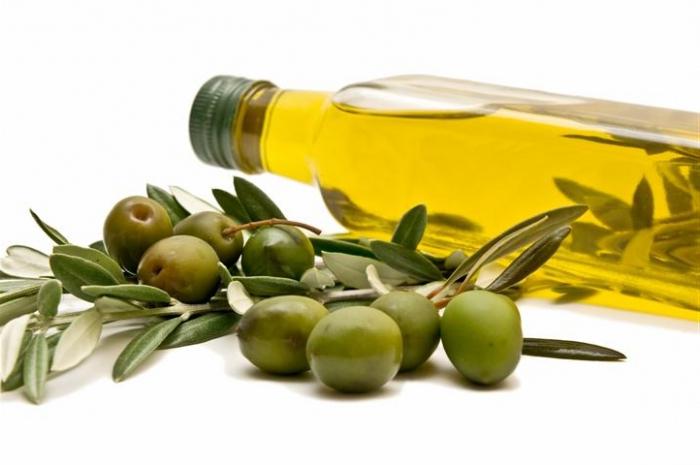
The most significant not only in the kitchen, but also in everyday life for a person is the oil squeezed from sunflower seeds. The father of sunflower oil is considered to be the Russian peasant Bokarev D.S., who once tried to squeeze it out of seeds by means of a manual churn.
His attempt was crowned with success, and a few years later, oil mills appeared in Russia, which began to export vegetable oil to other countries.
Contains linoleic (up to 62%) and oleic (up to 40%) acids. Foods containing these substances are easily absorbed by the body. In addition, the oil contains fractions of arachidonic, myristonic, palmitic, stearic, linolenic acids.
Sunflower oil is used in medicine and cosmetology. The presence of vitamin E in it allows the human body to produce the correct proportion of sex hormones. It is not for nothing that E is considered a multiplication vitamin. Traditional medicine also uses sunflower oil based remedies for rheumatism, and it is also used for coughs and otitis media.
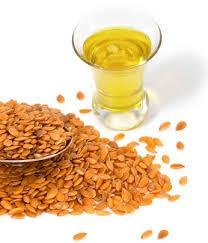
In terms of usefulness of all types of vegetable oils, olive is in the first place. It contains useful compounds and is practically harmless. The rich content of tocopherol, linoleic and polyunsaturated acids distinguishes it from other types of vegetable oils. It does not promote Ca leaching from the body and, importantly, does not contain cholesterol. Cosmetology uses face and hair masks containing olive oil. During massage procedures, doctors also recommend using it.
It is no less useful for us. This is the primary source of the Omega3 compound, it is this substance that is an obstacle to the growth of cancer cells. Taking this product helps to remove toxic substances from the body and optimize metabolic processes.
It is important to know that it is best to use cold-pressed oil. Vegetable oil, its calorie content and properties with this type of processing are preserved more than with heat treatment.
If you want to always be healthy, then you must remember that any product must be used within reasonable limits.
Remember the law of the optimum, which says that every element of nature affects a living organism, incl. and per person. If the influence of an element is insufficient or excessive, then this will necessarily negatively affect the development and vital activity of the organism.
Observe the norm in everything - and your health will always be at its best!
We all know the culinary features of unrefined sunflower oil, but few know how else this product is useful for humans.
The fact is that it contains polyunsaturated fatty acids that are not independently synthesized in the body. A full, balanced diet is impossible with their deficiency. These acids are also known as vitamin F.
The appearance of an exotic product in our country at first is associated with the name of D. Bokarev, because it was thanks to him, in 1829, that a method for obtaining sunflower oil appeared. Sunflower oil quickly gained popularity. And closer to the middle of the 19th century, export to other countries began.
The classic method of obtaining unrefined oil is cold-pressed technology; this type of oil is most useful for humans.
Modern production mainly uses the extraction method. Which is the extraction of oil using various organic solvents (gasolines). And they are refined with acids and alkalis. Of course, after such processing, there is nothing living in it, it is a dead product. Traditionally unrefined sunflower oil produce mainly small-scale production and sell on the markets.
Calorie content of sunflower oil
Unrefined sunflower oil is very high in calories. A tablespoon contains an average of 800-1000 kcal per 100 grams of product. Despite this, overweight people are advised to replace animal fats with unrefined sunflower oil. Still, there are restrictions on the use, no more than 20 grams per day, no more. An excess of fat can harm the functioning of internal organs.Useful properties of unrefined sunflower oil
The polyunsaturated fatty acids in the composition have a beneficial effect on the walls of blood vessels. Harmful cholesterol is eliminated, thereby normalizing blood pressure.
With the help of sunflower oil in folk medicine, a huge list of diseases is treated.
- stomach diseases;
- heart problems. Hyper- and hypotension;
- gallstone disease;
- atherosclerosis;
- arthrosis
But as they say, everything is good in moderation. Therefore, do not exceed the daily intake. In addition, for the purpose of health improvement, it is necessary to use oil that has not undergone heat treatment, that is, using it in salads. When frying, unrefined oil acquires undesirable and harmful properties; under the influence of high temperature, carcinogenic substances are formed from unrefined impurities. Therefore, it is less harmless for this purpose to use all the same refined oil. Although fried foods are not at all a healthy diet.
How to choose a good oil
When choosing unrefined oil on the market, of course, one should be guided by organoleptic methods, that is, color, smell, taste. If you buy this product in a retail network, then pay attention to the label, it should indicate that this oil unrefined and not deodorized, and of course the shelf life is respected. The oil is stored in a dark place and its shelf life is short.
What to cook with unrefined sunflower oil
The wonderful taste of fresh unrefined sunflower oil will decorate any salads and marinades. Be it any vegetables or fish, pickled mushrooms, everywhere the wonderful taste of such oil will come in handy and will emphasize all the flavor notes of the dish. Be healthy!
Caloric content of vegetable oil
In the modern world, vegetable oil is used for various purposes. Every woman has her own secrets for using it, both for preparing a variety of dishes, and for improving the body. Vegetable oil is extracted from the seeds and fruits of various plant crops, such as almonds, sunflowers, olives, corn, apricots, and other plants. The calorie content of vegetable oil also depends on the plant and its qualities.
The value of vegetable oils lies in the fact that they contain unsaturated fatty acids. Due to this, the oil is more easily absorbed by the body, without provoking deposits on the walls of blood vessels. Vegetable oil, the calorie content of which is too high, sometimes acts on the body in the opposite direction and contributes to the formation of fat in the body.
The beneficial properties of olive oil
Olive oil is very beneficial for the body. It is great for those who decide to lose weight without harming their health. Olive oil, the calorie content of which is 898 kcal, should be used no more than two to three tablespoons per day. This will be quite enough to enrich your body with useful substances. Despite the high calorie content of olive oil, it is entirely composed of unsaturated fats, which contribute to:
- decrease in the body of cholesterol deposits;
- reduction in the number of fat cells;
- strengthening the walls of blood vessels, making them more elastic;
- improves the condition of the facial skin and more.
But it must be remembered that during thermal cooking, any vegetable oil loses part of its nutrients. Caloric content does not play a special role in this. That's why better oil vegetable origin to use for preparing salads.
Calorie content of olive oil
Olives are a product that contains a lot of vitamins and microelements valuable for the body. The calorie content of vegetable oil, like any other fat, is quite high. But compared to animal fats, olive oil helps heal the digestive system, which is damaged by poor diet. The average calorie content of olive oil is 898 kcal per 100 g of oil. At the same time, proteins - 0.0 g, fats - 99.9 g, carbohydrates - 0.0 g, vitamin E (tocopherol) - 15.0 mg. One tablespoon of oil contains 199 kcal.
Useful properties of sunflower oil
The most popular and widespread among housewives is sunflower oil. It can be of two types: refined and unrefined, the calorie content of vegetable oil depends on it. As for the health benefits, unrefined oil is more nutritious, but at the same time it is much richer in useful vitamins.
Sunflower oil with a caloric value of 899 kcal is rich in polyunsaturated acids. On average, sunflower oil contains 42-62% linoleic acid and 24-40% oleic acid, which helps to normalize metabolism, and also strengthens the immune system. The presence of carbohydrates and proteins stabilizes the nervous system and improves blood quality.
Sunflower oil: calorie content and composition
The calorific value of sunflower oil reaches 900 kcal. Therefore, if you want to lose weight or are on a diet, then every drop of such oil must be strictly considered. You can count how many calories are in the oil yourself. But, as a rule, one tablespoon of oil contains 152.8 kcal, in a teaspoon - 45 kcal.
It should also be borne in mind that even when losing weight, you should not write off vegetable oils from the diet, the calorie content of which exceeds the norm. After all, they contain vitamins necessary for your health. Also, this oil can be used superficially for anti-cellulite massage.
How to determine how many calories are in vegetable oil?
The benefits of natural vegetable oils are enormous, they contain all the necessary substances for the normal functioning of the human body. Despite how many calories are in sunflower oil, it also contains phospholipids, pigments, vitamins, sterols and a huge amount of other biological substances found in seeds or fruits of plants.
 The type of plant and the amount of different substances in it depends on how many calories are in the vegetable oil of a particular plant. Carbohydrates and proteins in vegetable oil are present in small quantities; there is also no cholesterol in vegetable oil. The calorie content of the oil is quite high even at the same time.
The type of plant and the amount of different substances in it depends on how many calories are in the vegetable oil of a particular plant. Carbohydrates and proteins in vegetable oil are present in small quantities; there is also no cholesterol in vegetable oil. The calorie content of the oil is quite high even at the same time.
So how many calories are in sunflower oil? On average, the calorie content of sunflower oil is 898 kcal, corn oil - 900 kcal, olive oil - 900 kcal. This is based on 100 g of vegetable oil. For comparison: 100 g of lean veal has 97 kcal.
Correct weight loss with vegetable oils
The most healthy oil for weight loss, it is considered, oddly enough, it is sunflower oil, the calorie content of which is quite high. After all, you already know how many calories are in sunflower oil, but, despite this, it also contains unsaturated fatty acids, which are so necessary for proper weight loss.
Olive oil is also useful for weight loss. How many calories are in such oil, you can find out on the bottle label, the calorie content of the product must be indicated. Such oil can be seasoned with a variety of vegetable salads and drunk on an empty stomach, no more than one teaspoon before breakfast, lunch and dinner.
Vegetable oil is an affordable weight loss product for everyone. At the same time, the calorie content of vegetable oil can be completely different. The main thing here is its correct application and use. After all, before you start using, you need to know how many calories are in the vegetable oil that you are going to use, and its permissible norms. Certain types of vegetable oils can not only benefit your health, but also harm it if used incorrectly.
Vegetable oil is exactly the product that cannot be completely excluded from the diet, even for people who carefully control their weight. The benefits of this product for the human body are invaluable, because thanks to unsaturated fatty acids, the oil helps to preserve the beauty of hair, skin, etc. Of course, you need to understand that the energy value of the product is high, if you do not control its consumption, then you can provoke a rapid weight gain.
Vegetable oil is extracted from the seeds and fruits of various plants, for example, almonds, olives, sunflowers, corn, etc. Therefore, the calorie content of vegetable oil directly depends on the culture from which it was produced. Well, today we will talk about a product made from sunflower seeds.
The benefits of sunflower oil
The most popular among most housewives is butter made from sunflower seeds. Its lovely ladies use it for dressing vegetable salad, vinaigrette, cooking stewed cabbage, fried potatoes and for creating a huge number of dishes.
There are two types of lean butter:
- Refined;
- Unrefined.
The calorie content of the product will depend on these inscriptions on the label. If we talk about usefulness, then at least there are more calories in unrefined oil, on the other hand, the composition is rich in vitamins.
So, the unrefined product contains as much as 899 kcal per 100 g, it is very rich in polyunsaturated acids. If we talk about average indicators, then in vegetable oil the approximate content of linoleic acid varies within 42–62%, and oleic acid within 24–40%.
All these substances have a beneficial effect on the body: they strengthen the immune system and normalize metabolic processes. The presence of a large amount of vitamins and minerals in this popular salad dressing has a positive effect on the nervous system, improves the condition of hair, skin, stabilizes the digestive tract, etc.
About calorie content
As already mentioned, the energy value of 100 g of butter is 899 kcal. Of course, the indicator for losing weight is simply frightening, but do not rush to completely abandon such a useful product. If you do not drink it every day at 100 g, but use it in doses, in a few drops, then you can get the maximum benefit from the oil, and even lose weight.
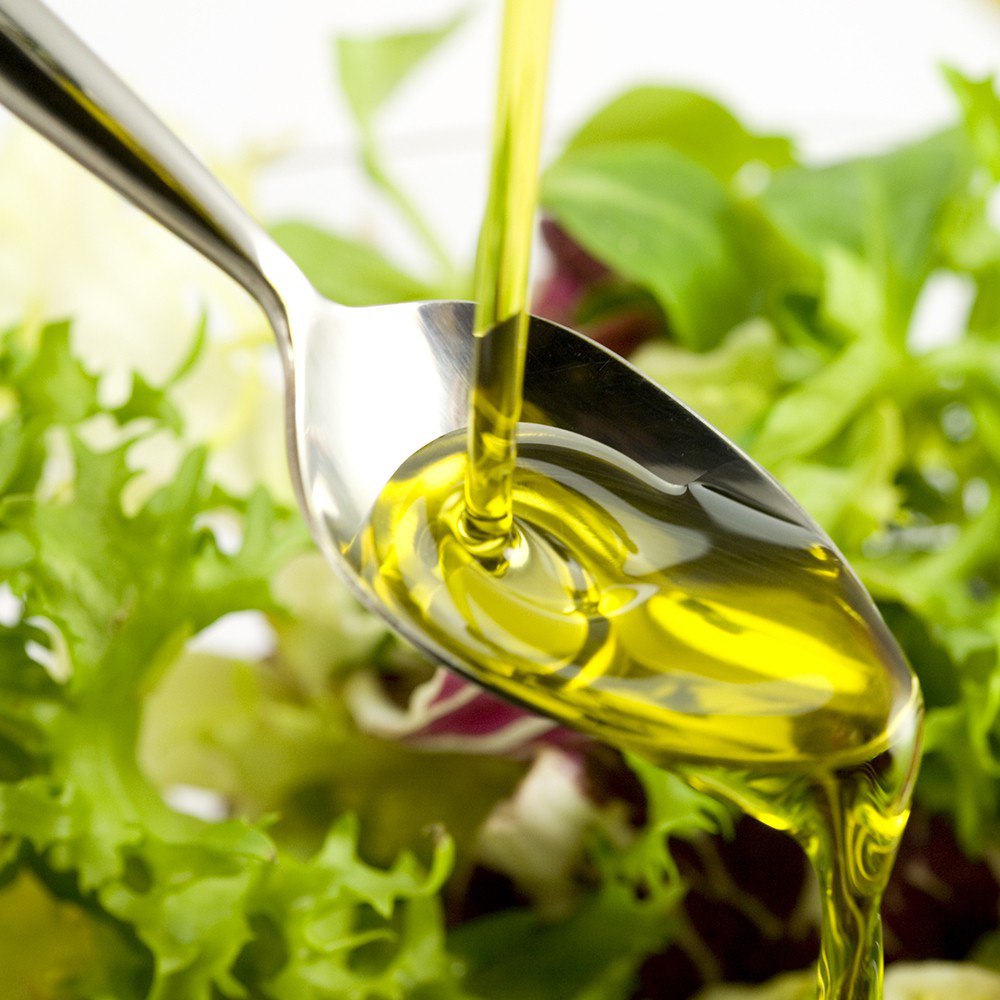
Therefore, remember, in 1 tbsp. l. of a lean product, there are about 152 kcal, and in a teahouse only 45 kcal. Wouldn't a small spoon be enough for you to season a salad or fry eggs? Of course that's enough. Although fried during weight loss is still worth giving up.
Summing up the above, we can conclude that the use of oil during the period of weight loss is permissible, but in moderation. It is the metered use of the product that will be able to nourish the body with the necessary vitamins and at the same time not inhibit the process of weight loss.
By the way, if you are currently actively losing weight, then use lean butter not only as an addition to your favorite dishes, but also as effective remedy to fight cellulite, massage it.
We find out the energy value of common dishes with the addition of vegetable oil
Since this product is used to prepare a large number of dishes, I would like to consider the most popular and determine their energy value.
The first step is to find out the calorie content of an egg fried in vegetable oil, since this is a traditional breakfast for many families. Let's say you use 4 eggs and 1 tsp for cooking. butter. The energy value of cooked scrambled eggs will be 390 kcal. Having shared a dish with one of your relatives, reduce the calorie content accordingly.
The next dish that many people love is fried potatoes. It should be said right away that everyone's favorite French fries should be excluded from the diet, since its calorie content is about 400 units per 100 g. This is a lot for those who want to get rid of the excess.
The calorie content of potatoes fried in vegetable oil without any unnecessary additives, prepared according to a traditional recipe, will be approximately 192 kcal. A lot, but sometimes you can afford it.
Most women who are on a diet season vegetable salads with a lean product, but what is the energy value of such a dish? It can vary, depending on the ingredients that will be included in the salad.
For example, take the following foods:
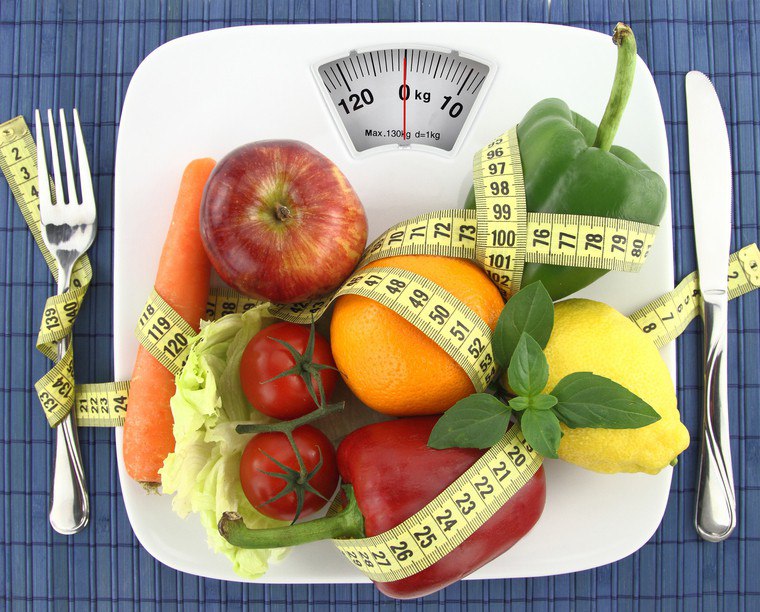
- fresh tomatoes - 200g;
- cucumbers - 300 g;
- radish - 200 g;
- pepper - 200 g;
- green onions - 50 g;
- vegetable oil - 40 g;
- salt - 2 g.
From the listed ingredients, you will get 6 full servings of salad.
It is prepared in an elementary way: all vegetables are washed and chopped in random order.
Then they mix in a deep bowl, season with oil and sprinkle with salt. The calorie content of such a vegetable salad with vegetable oil will be only 55 kcal per 100 g.
Those who are interested in the calorie content of vegetable vinaigrette with vegetable oil will be pleased to know that 100 g of such a salad contains about 60 kcal.
If you love cabbage hodgepodge, but do not know how to cook it so as not to gain weight, make it according to the recipe, which will be described below. The calorie content of such stewed cabbage with vegetable oil is no more than 50 kcal per 100 g, and the taste is simply incomparable.
For cooking you need:
- cabbage - 800 g;
- tomatoes - 350 g;
- carrots - 100 g;
- onion - 200 g;
- vegetable oil - 30 g;
- salt - 8 g.
The preparation steps will be as follows:
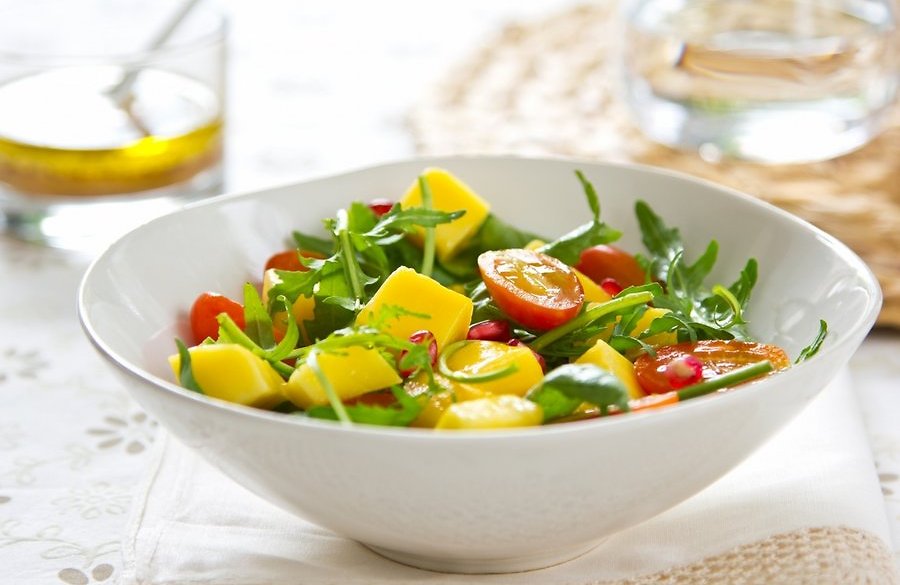
- Remove the husk from the onion and chop finely;
- Heat the oil in a frying pan and put the prepared onion there, fry until golden brown;
- Put the finely grated carrots to the onion, mix everything. Fry vegetables together for about seven minutes;
- Chop the cabbage finely and put in the pan, stir the contents of the dishes;
- Wash tomatoes and cut into small pieces, put with other vegetables;
- Salt the contents of the skillet, stir and cook over low heat until the cabbage softens.
Now you know everything useful information about vegetable oil, as well as the calorie content of some dishes with the addition of a lean product.
New knowledge will be a good basis for you on the path to harmony. Good luck!


